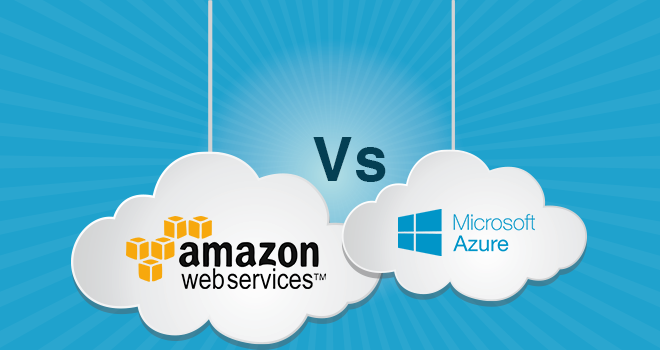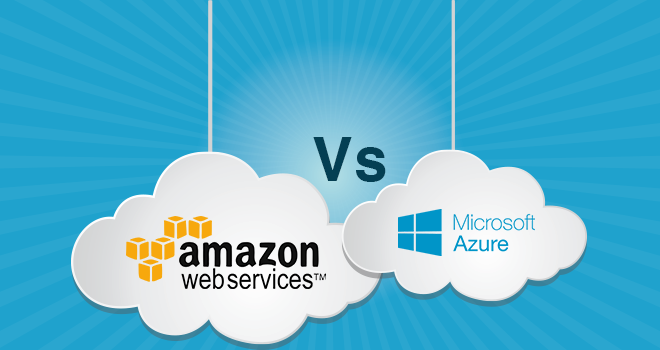The importance of building a secure AWS environment
Security breaches are very common to hear when it comes to technology. Recent news updates like the one for Code Spaces security breach clearly...
2 min read
Anurag : Mar 2, 2016 12:00:00 AM

Amazon Web Services and Microsoft Azure public cloud, arguably have the most elaborate and defined set of services to offer. Although there are other giants too coming up in the market these two undoubtedly lead the domain.
Both have recently cut down a lot on prices on their services. Amazon leads Azure when we consider sales volume and capacity. Azure, on the other hand, also offers a tough competition to Amazon through its excellent support for development and testing tools.

Let us compare the services of both AWS and Azure in detail:
Both AWS and Azure provide instant provisioning, auto scaling, and identity management features. Also, they both provide advanced analytics like Hadoop and incorporate machine learning and internet of things.
Storage, Databases and Networking
Both AWS and Azure excel in providing computation and storage cloud services. AWS offers storage services through S3 , Glacier, Storage Gateway etc.; compute services through EC2, Elastic beanstalk, AWS lambda etc; networking services through VPC (Virtual Private Cloud), Route 53 etc.. Azure provides computation services through Virtual Machines, Service Fabric, Batch etc; storage services like StorSimple, Storage, Search etc; and networking services as Traffic Manager, Azure DNS, Express Route etc.. Both support relational databases (Azure SQL Database, Amazon Relational Database Service and Redshift), and NoSQL data bases (Azure DocumentDB and Amazon DynamoDB).Both Azure and AWS provides the auto scaling. but AWS's EC2 provides a backbone and framework for it, while Azure provides an API that can be extended. So the auto scaling feature is however more flexible through AWS.
On billing front, Azure offers billing per minute and AWS works on hourly usage for Compute Instances.
Clientele
Amazon has a huge clientele like Geiger, Netflix, Dow Jones, etc. Although Azure has fewer high profile users, it stands powerful on SaaS market and has plans to expand its business with companies like Ford, Pearson, and NBC News.
All in all, the AWS services are broad as they have good experience in cloud. It provides easy-to-access third party services. AWS is open and flexible for choosing and building parts of cloud elements. However, the hybrid strategy of AWS is yet to be developed properly. Also the on-premise private cloud services are not competent enough.
Azure provides excellent support on development and testing tools front. It works great with existing on premise systems and Microsoft frameworks and also provides complete support for on premise private cloud services unlike AWS. Azure , however, has weak disaster recovery capabilities Also, its support for multiple platforms is restrictive.
Whether you want to go with AWS or Azure is a choice that you can make depending upon your company’s needs.
Get in touch with us and find out how we can offer any of these services as per your requirements:

Security breaches are very common to hear when it comes to technology. Recent news updates like the one for Code Spaces security breach clearly...

Amazon Simple Notification Service also known as Amazon SNS can now be used to receive notifications such as emails and text messages when the AWS...